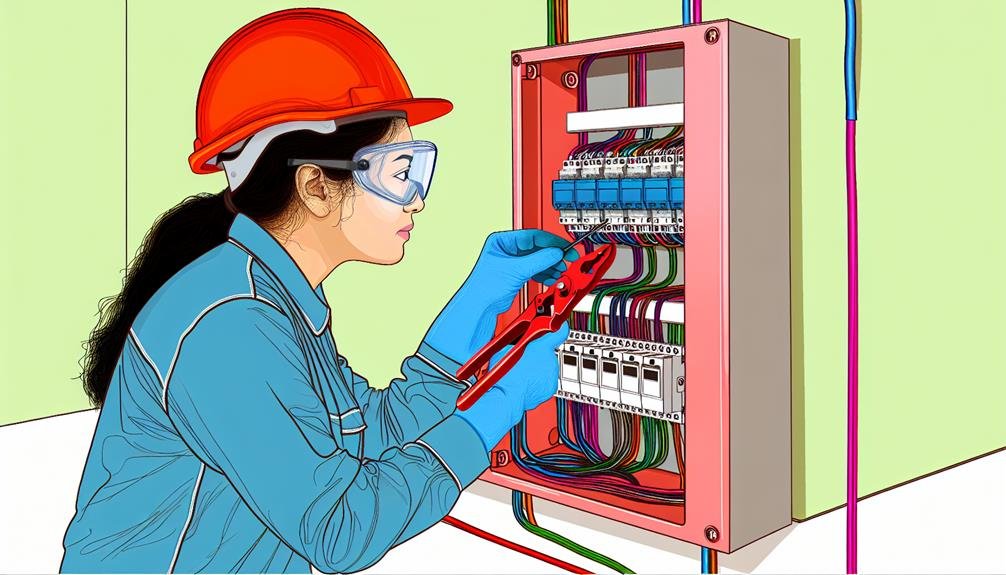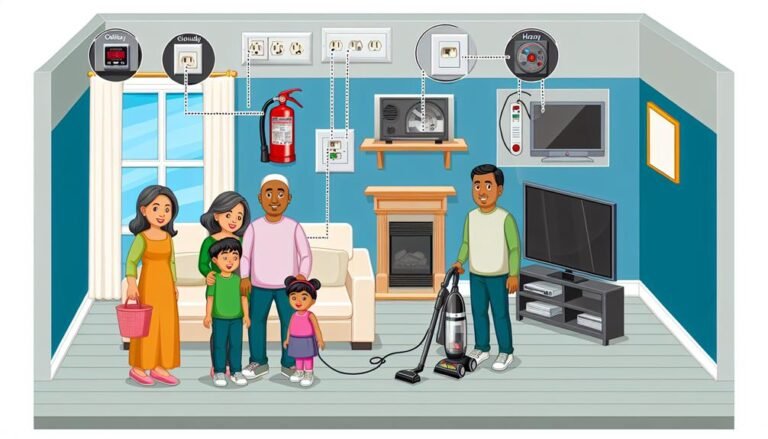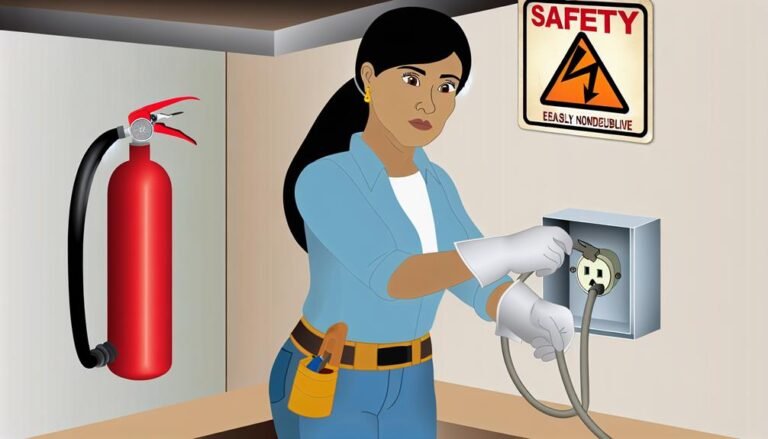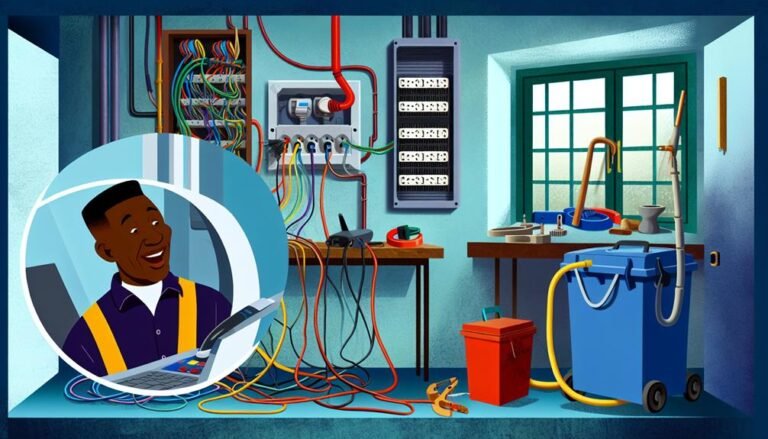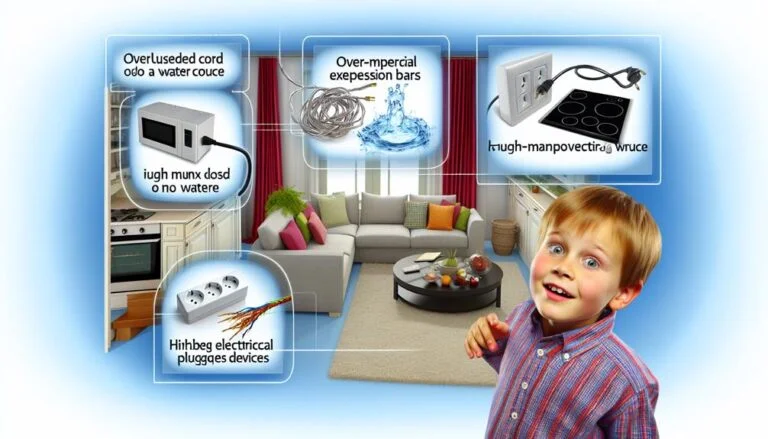Imagine your electrical system as a well-oiled machine, humming along smoothly and efficiently. But what happens when that machine starts to falter, its gears grinding and sparks flying? Regular electrical maintenance acts as the diligent mechanic, ensuring that your electrical system remains safe and reliable.
However, the importance of this maintenance goes far beyond just keeping everything running smoothly. It plays a crucial role in preventing potential accidents, identifying hidden hazards, and complying with safety regulations.
So, let's explore why regular electrical maintenance is an essential aspect of ensuring your safety and the well-being of your electrical system.
Key Takeaways
- Regular electrical maintenance reduces the risk of electrical fires and prevents electrical shocks and injuries.
- It extends the lifespan of electrical equipment and improves energy efficiency.
- Hiring a professional for electrical maintenance ensures expert knowledge and skills, thorough inspection and testing, and timely resolution of issues.
- Electrical maintenance is necessary for compliance with safety regulations and provides increased safety and peace of mind.
Preventing Electrical Accidents
To prevent electrical accidents, it's imperative to implement proper safety measures and adhere to strict maintenance protocols. One of the key aspects of preventing such accidents is providing electrical safety training. This training equips individuals with the knowledge and skills necessary to work with electrical systems safely. It covers important topics such as identifying potential hazards, understanding electrical codes and regulations, and using protective equipment correctly.
Electrical accidents can have severe consequences, including injuries, property damage, and even loss of life. By understanding the common causes of these accidents, individuals can take proactive steps to prevent them. Some of the most prevalent causes include faulty wiring, improper grounding, overloading circuits, and inadequate maintenance of electrical equipment. These issues can lead to electrical shocks, fires, and explosions.
Regular electrical maintenance plays a crucial role in preventing accidents. It involves inspecting and testing electrical systems and equipment to identify any faults or potential hazards. Routine maintenance tasks include checking for loose or damaged connections, replacing worn-out components, and ensuring proper insulation. By addressing these issues promptly, the risk of electrical accidents can be significantly reduced.
Ensuring Proper Functioning of Electrical Systems
Proper functioning of electrical systems is essential for ensuring the safety and efficiency of any facility or environment. Regular electrical maintenance plays a crucial role in achieving this goal by enhancing energy efficiency and minimizing downtime. By conducting routine inspections, testing, and repairs, potential issues can be identified and addressed before they escalate into major problems.
One way to ensure the proper functioning of electrical systems is by enhancing energy efficiency. This involves optimizing the use of electrical equipment and reducing energy wastage. Regular maintenance allows for the identification and rectification of any inefficiencies or malfunctions that may be causing unnecessary energy consumption.
Another benefit of regular electrical maintenance is minimizing downtime. Downtime refers to the period when electrical systems are not operational due to faults or failures. This can result in significant disruptions and financial losses. By conducting regular maintenance, potential issues can be detected and resolved early on, preventing unexpected breakdowns and minimizing the duration of any necessary repairs.
To provide a visual representation of the importance of proper functioning of electrical systems, the following table highlights the benefits of regular electrical maintenance in enhancing energy efficiency and minimizing downtime:
| Benefits |
|---|
| Enhanced energy efficiency |
| Minimized downtime |
Identifying and Addressing Potential Hazards
Identifying and addressing potential hazards is an essential part of electrical maintenance to ensure the safety and reliability of electrical systems. By proactively identifying and addressing potential hazards, you can greatly reduce the risk of fire and minimize electrical failures. Here are three important steps to consider:
- Conducting regular inspections:
Regular inspections allow you to identify any potential hazards before they become major issues. Inspect electrical equipment, wiring, and connections for signs of wear, damage, or overheating. Look for loose connections, frayed wires, or any other signs of potential problems. By catching these issues early, you can address them promptly and prevent more significant problems down the line.
- Implementing preventive maintenance measures:
Regular preventive maintenance is crucial in minimizing electrical failures. This includes tasks such as cleaning electrical components, lubricating moving parts, and tightening connections. By regularly maintaining your electrical systems, you can prevent malfunctions, extend the lifespan of your equipment, and improve overall safety.
- Training employees on electrical safety:
Ensuring that your employees are well-educated on electrical safety is essential for preventing accidents and hazards. Provide training on proper handling of electrical equipment, safe work practices, and emergency procedures. Encourage employees to report any potential hazards they notice during their daily work. By fostering a culture of safety and awareness, you can greatly reduce the risk of electrical incidents.
Extending the Lifespan of Electrical Equipment
Regular maintenance and proper care are essential for maximizing the lifespan of electrical equipment. By implementing a regular maintenance schedule, you can ensure that your electrical equipment operates at its optimal efficiency, reducing the risk of breakdowns and downtime.
Improving efficiency is a key factor in extending the lifespan of electrical equipment. Regular maintenance allows you to identify and address any issues that may be affecting the efficiency of your equipment. This can include cleaning or replacing dirty or worn-out components, lubricating moving parts, and tightening loose connections. By addressing these issues promptly, you can prevent further damage and ensure that your equipment continues to operate at peak performance.
Reducing downtime is another important aspect of extending the lifespan of electrical equipment. Downtime can be costly, causing disruptions to your operations and potentially leading to financial losses. Regular maintenance helps to identify potential problems before they escalate into major issues, allowing you to address them proactively. By doing so, you can minimize the risk of unexpected breakdowns and keep your equipment running smoothly.
Compliance With Safety Regulations
Are you aware of the safety regulations that must be followed for electrical maintenance? Compliance with safety regulations is crucial for ensuring legal requirements and minimizing safety risks. By adhering to these regulations, you can protect yourself, your property, and those around you from potential electrical hazards.
Consider the following important safety regulations:
- National Electrical Code (NEC): This widely adopted standard outlines the minimum requirements for safe electrical installations and is regularly updated to keep up with technological advancements.
- Occupational Safety and Health Administration (OSHA) Standards: These regulations are designed to ensure workplace safety and cover a wide range of electrical hazards, including electrical shock, arc flash, and electrocution.
- National Fire Protection Association (NFPA) Standards: These standards address fire safety, including guidelines for electrical equipment installation, maintenance, and inspection.
Complying with these safety regulations is essential for maintaining a safe electrical system. It not only helps prevent accidents but also safeguards against legal consequences and financial liabilities. By following these regulations, you can demonstrate your commitment to safety and protect the well-being of yourself, your employees, and your community.

